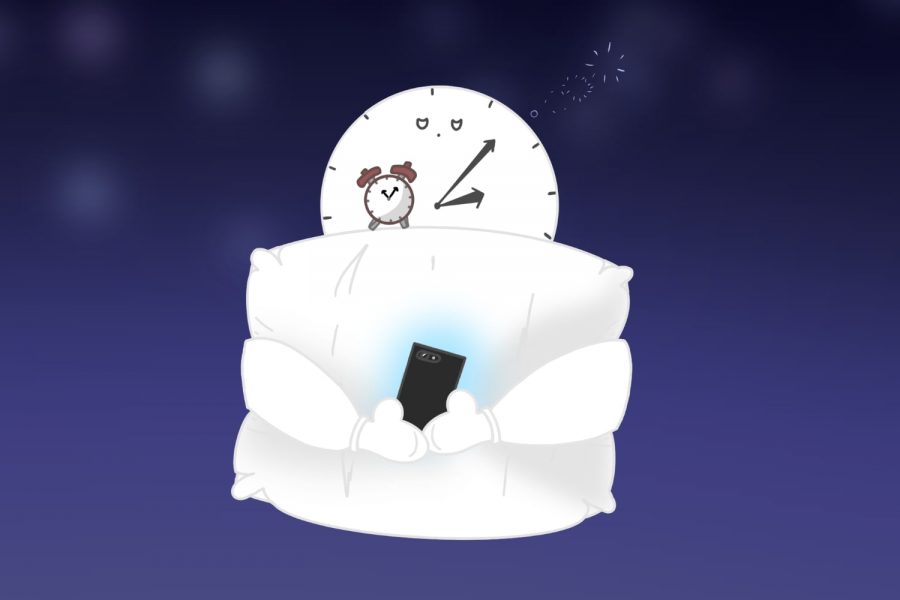Blue light emitted by screens confuses our body’s natural sleep schedules, and excessive device use right before bed can lead to issues like insomnia and sleeplessness, as well as degrade the quality of sleep.
Insomnia and Sleep Difficulties
Screen time, specifically the blue light emitted from electronics, has been proven to disrupt sleep patterns in adolescents. Ranging from morning grumpiness to severe anxiety attacks, the consequences of this prove to be severe.
Human bodies have several circadian rhythms, which are the internal clocks that regulate the production of specific hormones. One of these rhythms is the sleep-wake cycle, which is primarily light-oriented.
This cycle was a necessary survival trait for humans, a species that has evolved to be diurnal, meaning sleeping during the dark of night. When the body detects light, the brain begins mass-producing signals that generate alertness throughout the body. Humans needed this system to be awake and vigilant enough to survive in nature. The inverse is true as well: the body releases a sleep-inducing hormone called melatonin during the night, which allows it to recover.
Digital screens such as those on cell phones or computer monitors emit blue light, which has a high wave frequency. Your body registers this light similarly to sunlight, preventing the production of the melatonin needed to recover from daily activities and stress.
“I use my device a lot before I go to bed. If I didn’t have a device, I’d probably get at least an extra hour of sleep,” Taylor said.
While this can lead to poor sleep short-term, it may cause sleep conditions such as insomnia if continuously experienced every night, and that can affect more than just how tired you are. A study conducted by Dag Neckelmann, M.D., Ph.D. of Haukeland University Hospital’s Department of Psychiatry, shows that prolonged bouts of insomnia can lead to depression.
The study attempted to find a link between symptoms of chronic insomnia with the development of anxiety and depressive disorders. Two general health surveys were issued to 25,130 Norwegian participants, the second survey occurring 11 years from the first. Each participant’s levels of sleeplessness and anxiety were observed.
The study found that participants who had insomnia symptoms that persisted throughout the 11-year span also had a greater association with developing depressive disorders than those devoid of insomnia symptoms entirely.
With many binging shows and playing video games before bedtime, teens risk impeding the natural processes of their sleep, which can lead to anxiety and stints of panic in their daily lives.

